Latest Trends in Emerging Topics
for Practicing Engineers
for Practicing Engineers
Earn up to 8 Professional Development Hours
Only $40 for IEEE members
Only $40 for IEEE members
Saturday, November 10, 2012
Indianapolis Marriott East
7202 East 21st Street
Indianapolis, IN
"
Indianapolis Marriott East
7202 East 21st Street
Indianapolis, IN
The Central Indiana Section IEEE, along with Region 4,
will be sponsoring a one day technical workshop on Saturday, November 10, 2012.
The purpose of the workshop is to offer IEEE members and non-members an opportunity to
gain knowledge in the fields of computers, communications, power electronics
and signal processing.
Each participant will receive an
8GB USB Flash Drive with Speaker Notes
8GB USB Flash Drive with Speaker Notes
Due to Hurricane Sandy, many IEEE services including E-Notice, Email
and VTools, have been intermittent or unavailable. Therefore,
the early registration fee has been extended through 11/07/12.
The registration page has been moved to here as well. Please
bring payment with you on Saturday.
Registration Now Closed
| 7:00 | - | 8:00 | Registration |
| 8:00 | - | 8:20 | Opening |
| 8:20 | - | 9:10 | Agile Software Development in an
Evolving Business Environment Hector Escobar II |
| 9:10 | - | 10:00 | Mythbusting Scientific Knowledge
Transfer with nanoHUB.org
Dr. Gerhard Klimeck |
| 10:00 | - | 10:30 | Break |
| 10:30 | - | 11:20 | Hybrid Electric Vehicles Dr. Maryam Saeedifard |
| 11:20 | - | 12:10 | Power Electronics in
Renewable Energy Applications Dr. Philip Krein |
| 12:10 | - | 1:10 | Lunch |
| 1:10 | - | 2:00 | Security Challenges in Vehicular Cloud Communication Dr. Gongjun Yan |
| 2:00 | - | 2:50 | Ubiquitous Differential-Serial Digital Communications Dr. Jianjian Song |
| 2:50 | - | 3:20 | Break |
| 3:20 | - | 4:10 | "Hey!! What's That in Your Pocket?"
The Mobile Device: Past, Present, and Future Edward J. Delp |
| 4:10 | - | 5:00 | Low-computation shape descriptors
for smart phone applications Prof. Mimi Boutin |
Computer Society:

Agile Software Development in an
Evolving Business Environment
Evolving Business Environment
Hector Escobar II, CTO of FitzMark
Today's economic climate has produced leaner and more agile businesses
that are more receptive to making the necessary adjustments needed to
remain relevant. This shift in business practices has trickled down
to technology departments everywhere.
Agile development has become the new normal
for programmers, which has translated into increased frequency of releases
and shorter development cycles. Project managers have had to build stronger
relationships with all applicable stakeholders involved. Customer feedback
has never been more important; it has led to the rise of many companies
who have applied it and the demise of those who have not.
As agile development becomes more prevalent
new execution plans need to be
designed that adjust to the scale and objectives of each project.
In this session we will go over some examples and relevance of agile project
development in today's programming environment.
Hector Escobar II is currently the Director of Technology
for FitzMark, with 7 years of experience implementing development
strategies for a wide variety of clients spanning the healthcare, insurance,
and transportation sectors. He has experience implementing functional and
cost effective software solutions designed to improve efficiencies in highly
transactional environments. He lives in Zionsville Indiana with his wife
and two dogs. Interests include working with entrepreneurs and deep sea fishing.
~~~
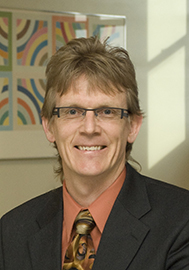
Mythbusting Scientific Knowledge Transfer with nanoHUB.org
Dr. Gerhard Klimeck
Professor of Electrical and Computer Engineering
Purdue University
Professor of Electrical and Computer Engineering
Purdue University
nanoHUB.org is an Internet-based research infrastructure based at Purdue University.
nanoHUB is revolutionizing how research moves into the engineering classroom
with newly published tools entering classrooms at multiple institutions within
weeks or months rather than years.
Typically, research innovations take about 3.8 years to
enter the engineering curricula through textbooks; however, tools deployed on
nanoHUB diffuse into the curricula in a median time of 174 days. Sustained,
vertically integrated work in education research will point to approaches for
narrowing the gap still further between how experts and practicing professionals
use simulation tools for exploring problems and how novices use these tools
when learning topics related to nanoscale science and engineering.
Dr. Gerhard Klimeck serves as Director of the Network for Computational
Nanotechnology and as a Professor of Electrical and Computer
Engineering at Purdue University. He has worked in both R&D roles as well
as holding roles in management covering Nanoelectronic Device Modeling and Design
for industry (Texas Instruments), national laboratories (NASA Jet Propulsion
Laboratory at the California Institute of Technology), and academia. His present
focus concerns the development and guidance of a community service website serving
tens of thousands of users with online simulation, seminars, and tutorials: www.nanoHUB.org.
Power Electronics Society:
Hybrid Electric Vehicles
Dr. Maryam Saeedifard, ECE, Purdue University
Maryam Saeedifard (S'04-M'08-SM'11) received the Ph.D. degree in electrical engineering
from the University of Toronto, Toronto, ON, Canada, in 2008. Prior to joining
Purdue University, she was a visiting research associate with the Power Electronic
Systems Group, ABB Corporate Research Center, Dattwil-Baden, Switzerland.
Since January 2010, she has been an Assistant Professor in the School of
Electrical and Computer Engineering, Purdue University, West Lafayette, IN.
Her research interests include power electronics, applications of power
electronics in power systems, and vehicle electrification.
Dr. Saeedifard was the recipient of an Natural Sciences and Engineering
Research Council (NSERC) Postdoctoral Fellowship of Government of Canada in 2008,
the Richard M. Bass Outstanding Young Power Electronics Engineer Award of the IEEE
Power Electronics Society in 2010, the Seed for Success Award (for Excellence in Research),
from Purdue's Office of Vice President for Research in 2011 and 2012.
Dr. Saeedifard is an Associate Editor of the IEEE Trans. on Sustainable Energy
and the IEEE Trans. on Power Delivery.
~~~
Power Electronics in
Renewable Energy Applications
Renewable Energy Applications
Dr. Philip Krein, ECE
University of Illinois (Urbana-Champaign)
Philip T. Krein received the B.S. degree in
electrical engineering and the A.B. degree in economics and business from
Lafayette College, Easton, Pennsylvania, and the M.S. and Ph.D. degrees in
electrical engineering from the University of Illinois, Urbana. He was an
engineer with Tektronix in Beaverton, Oregon, then returned to the University of Illinois
at Urbana-Champaign. At present, he holds the Grainger Chair in Electric
Machinery and Electromechanics as Professor and Director of the Grainger
Center for Electric Machinery and Electromechanics. His research interests
address all aspects of power electronics, machines, drives, and electrical
energy, with emphasis on nonlinear control and distributed systems.
He published an undergraduate textbook, Elements of Power Electronics (Oxford University Press, 1998).
In 2001, he helped initiate the International Future Energy Challenge,
a major student competition involving fuel cell power conversion and
energy efficiency. He holds twenty U.S. patents with additional patents pending.
In 2003, he received the IEEE William E. Newell Award in Power Electronics.
He is a past President of the IEEE Power Electronics Society, and served as
a member of the IEEE Board of Directors. In 2005-2007, he was a Distinguished
Lecturer for the IEEE Power Electronics Society. He also serves as
Chairman of the Board of SolarBridge Technologies, a developer of
long-life integrated solar energy systems.
Communications Society:
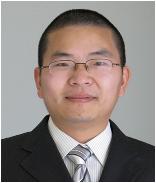
Security Challenges in Vehicular Cloud Communication
Dr. Gongjun Yan, Assistant Professor
Indiana University
Indiana University
In a series of recent papers, Professor Olariu and his co-workers
have promoted the vision of Vehicular Clouds (VCs), a non-trivial extension,
along several dimensions, of conventional cloud computing. In a VC,
the under-utilized vehicular resources including computing power,
storage and Internet connectivity can be shared between drivers or rented
out over the Internet to various customers.
Dr. Gongjun Yan received his Ph.D . in
Computer Science from Old Dominion
University in 2010. He is currently an Assistant Professor in Indiana University
and has been working on the issues surrounding Intelligent Transportation,
Vehicular Ad-Hoc Networks, Sensor Networks and Wireless Communication. His main
research areas include intelligent vehicles, security, privacy, routing, and healthcare.
In years, Dr. Yan applies mathematical analysis to model behavior of complex
systems and integrates existing techniques to provide comprehensive solutions.
He had more than 50 publications including journal/conference papers, book chapters,
and patents.
~~~
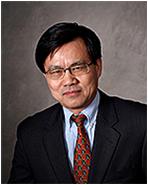
Ubiquitous Differential-Serial Digital Communications
Dr. Jianjian Song
Department of Electrical and Computer Engineering
Rose-Hulman Institute of Technology
Department of Electrical and Computer Engineering
Rose-Hulman Institute of Technology
Serial digital communication is to send data one bit at a time through
two wires, i.e., a pair of wires. Both single-end and differential signaling methods
are used to transmit one bit information electronically. Differential signaling
is to use the current or voltage differential on a pair of wires to transmit
information. Differential-serial communication is the most popular method of new
serial communication protocols for both system level communications such as
USB and Zigbee, or chip level communication such as CAN. Advances in integrated
circuit and printed circuit technologies have made differential serial
communications inexpensive.
This talk will demonstrate a number of modern serial communication
schemes such as CAN, USB, I2C.
Jianjian Song (M'88, S'07) received his B.S. degree in radio engineering from
Huazhong University of Science and Technology in Wuhan, China in 1982,
and his M.S. and Ph.D. degrees in electrical engineering from the University of
Minnesota in 1985 and 1991. He joined the Department of Electrical
and Computer Engineering of Rose-Hulman Institute of Technology in Terre Haute,
Indiana in 1999 as associate professor and he has been full professor since 2010.
From 1991 to 1999, he worked for the Institute of High Performance Computing
of the National University of Singapore as research scientist and division
manager. His teaching and research interests include electromagnetic
compatibility, high-speed digital system design, microcontroller-based system design,
embedded and real-time systems, electronics design automation, and algorithms
and architecture for parallel and cluster computing.
Signal Processing Society:
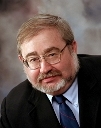
"Hey!! What's That in Your Pocket?"
The Mobile Device: Past, Present, and Future
The Mobile Device: Past, Present, and Future
Edward J. Delp
Video and Image Processing Laboratory
School of Electrical and Computer Engineering
West Lafayette, Indiana
Video and Image Processing Laboratory
School of Electrical and Computer Engineering
West Lafayette, Indiana
This talk will describe a view of the
future using mobile connected devices/telephones. It is obvious that
in the very near future your mobile device may be your principal,
if not only, way to communicate. I will describe new applications
that will include the use of context-based information. A simple
example of this is geo-location and other information relating to
how a user is "using" the mobile device. I will also describe other
applications including language translation, health care delivery,
and the use of on-board sensors. The use of the imaging sensor
(i.e. the camera) for non-imaging applications will be described.
This talk will describe my view of where this mobile future is going
and how it will be "good" for users but I will also address problems
of privacy. One could envision a mobile device that would spy on its users.
Edward J. Delp was born in Cincinnati, Ohio. He received the B.S.E.E. (cum laude)
and M.S. degrees from the University of Cincinnati, and
the Ph.D. degree from Purdue University. In May 2002 he received
an Honorary Doctor of Technology from the Tampere University of
Technology in Tampere, Finland.
From 1980-1984, Dr. Delp was with the Department of Electrical
and Computer Engineering at The University of Michigan,
Ann Arbor, Michigan. Since August 1984, he has been with the
School of Electrical and Computer Engineering and the School of
Biomedical Engineering at Purdue University, West Lafayette, Indiana.
From 2002-2008 he was a chaired professor and held the title
The Silicon Valley Professor of Electrical and Computer Engineering
and Professor of Biomedical Engineering. In 2008 he was named a
Distinguished Professor and is currently The Charles William Harrison
Distinguished Professor of Electrical and Computer Engineering and
Professor of Biomedical Engineering.
In 2007 he received a Distinguished Professor appointment from
the Academy of Finland as part of the Finland Distinguished Professor
Program (FiDiPro). This appointment is at the Tampere International
Center for Signal Processing at the Tampere University of Technology.
His research interests include image and video compression, multimedia
security, medical imaging, multimedia systems, communication and information theory.
Dr. Delp has also consulted for various companies and government
agencies in the areas of signal, image, and video processing,
pattern recognition, and secure communications. He has published
and presented more than 450 papers.
Dr. Delp is a Fellow of the IEEE, a Fellow of the SPIE, a Fellow
of the Society for Imaging Science and Technology (IS&T), and a
Fellow of the American Institute of Medical and Biological Engineering.
In 2004 he received the Technical Achievement Award from the
IEEE Signal Processing Society for his work in image and video
compression and multimedia security. In 2008 Dr. Delp received
the Society Award from IEEE Signal Processing Society (SPS).
This is the highest award given by SPS and it cited his work
in multimedia security and image and video compression. In 2009
he received the Purdue College of Engineering Faculty Excellence
Award for Research.
In 1990 he received the Honeywell Award and in 1992 the D. D. Ewing Award,
both for excellence in teaching. In 2001 Dr. Delp received the
Raymond C. Bowman Award for fostering education in imaging science
from the Society for Imaging Science and Technology (IS&T).
In 2004 he received the Wilfred Hesselberth Award for Teaching
Excellence. In 2000 Dr. Delp was selected a Distinguished Lecturer
of the IEEE Signal Processing Society and in 2002 and 2006 he was
awarded Nokia Fellowships. From 2008-2010 he has been a member of
the Scientific Advisory Board of the Nokia Research Center�s Media Laboratory.
~~~
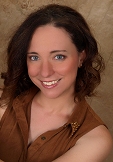
Low-computation shape descriptors
for smart phone applications
for smart phone applications
Prof. Mimi Boutin Purdue University
Mireille Boutin was born in Canada in the province of Quebec.
She received the B.Sc. degree in Physics-Mathematics from the University de Montreal,
and the Ph.D. degree in Mathematics from the University of
Minnesota in Minneapolis under the direction of Peter Olver.
After a post-doctorate with David Mumford and David Cooper at Brown University,
followed by a post-doctorate with Stefan Muller at the Max Planck Institute for
Mathematics in the Sciences (Leipzig, Germany), she joined Purdue's School of
Electrical and Computer Engineering. She is now an Associate Professor with tenure,
and holds a courtesy appointment in the Department of Mathematics.
She is an editor of the journal "Applicable Algebra in Engineering, Communication and Computing",
published by Springer. She is the instigator of "Project Rhea"
a student-driven Purdue-wide collective learning project. She is the co-founder
(with Kathryn Leonard) of the Rose Whelan Society, an organization for women
graduate students and post-doctorate in mathematics/applied mathematics at
Brown University. She is the recipient of the Eta Kappa Nu Outstanding Faculty
Award (Fall 2007) and the Wilfred "Duke" Hesselberth Award for Teaching Excellence (2008).
She is a member of IEEE, SPIE, the AMS and FoCM. Her current research interests
include image and video processing, object recognition, automatic text translation,
portable device applications and computational mathematics.
Registration Fees
| Registration Type | On or Before 11/7/2012 | After 11/7/2012 |
| IEEE Life Member | $25 | $40 |
| IEEE Member | $40 | $55 |
| Non-IEEE Member | $70 | $85 |
| Student IEEE Member | $25 | $40 |
| Student Non-IEEE Member | $35 | $50 |

